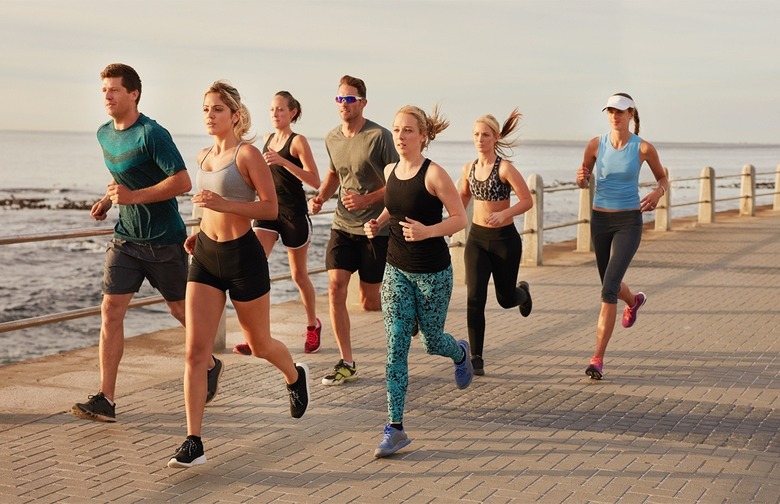10 Ways Millennials Are Healthier Than Their Parents Slideshow
Perhaps the most criticized generation in history, millennials get a lot of press for being lazy, self-centered, and even outright ridiculous. But maybe they're not so deserving of all this criticism, after all.
Sales of health products are on the rise, Whole Foods has been bought out by one of the world's largest online retailers, and farmers markets are growing in popularity by the day. All of these changes in the food industry are making businesses more accountable for living up to their health-related claims. The driving force behind these major shifts? Millennials.
Based solely on social media trends, such as avocado toast and smoothie bowls, one might guess that this generation is far healthier than the one before it. It turns out that, while the facts go both ways, millennials have their parents beat in a few key areas when it comes to their health. The food-porn obsession and expensive fitness trends may just have paid off — and perhaps this generation could teach their parents a thing or two about their health.
They Believe in a Work/Life Balance
This is a bit of a surprising statistic, due to the younger generation's driven attitude about career and achievement. When interviewed, 49 percent of millennials expressed their belief in maintaining a work/life balance to promote health — nearly ten percent greater than the proportion of non-millennials.
A work/life balance is crucial for maintaining mental health — at least millennials know that much.
They Consult Nutritionists
A good sign that the younger generation is at least aware of its unhealthy habits, over 65 percent of adults born after 1978 consult a nutritionist about their dietary choices. This number, and the number of nutritionists in practice, was far lower for generations prior.
They Eat More Plants
Between the plant-based, vegan, and vegetarian trends, it's no surprise that millennials are eating more vegetables than past generations.
"According to the Mintel Global Food and Drink Trends 2017 report, there was a 257 percent increase in the number of vegan food and beverage launches in 2016," CNBC reported. The food industry is tailoring to an increasing demand in plant-based foods coming from millennials, who are now at the age that they are buying food for themselves.
The trend is not limited to vegetarian and vegan-ism, however. Flexitarian diets, wherein consumption is focused on plant-based foods but still includes meat, are increasing in popularity, as well. With plants providing so many vital vitamins and minerals, this is a huge health win for the generation.
They Participate in More Social Exercise
According to Robyn Doane, senior social strategist at Saatchi & Saatchi Wellness, millennials believe that "working out is a fun and collaborative thing to do with [their] friends." Essentially, millennials are motivated by sharing their success with others. For this reason, the generation is known for being the age group most frequently found in boutique fitness classes.
They Read More Books
We've all heard the popularized fear that "young people just don't read anymore". To help prevent this, maybe your grandparents made you play Scrabble one too many times, or maybe you always received books for Christmas. But in reality, this fear is unfounded.
In a recent 2016 study, 80 percent of millennials reported having read a book in the past twelve months, while only 70 percent of adults aged 50-65 admitted the same. It's possible that millennials are reading more books than their parents—and, not to mention, reading exponentially more online.
They Shop Organic
Twenty percent more young people actively try to include organic foods in their diet than adults their parents' age. Non-organic foods may contain pesticides and other preservatives that can increase risk of cancer, contribute to a build-up of toxins in the body, and cause other health problems in the long run.
They Smoke Less
Smoking cigarettes undoubtedly causes a number of adverse health effects including an increased risk of lung disease and cancer. Not only have cigarette sales plummeted, but a whopping 83 percent of millennials reported disapproval of cigarette smoking habits when they were in twelfth grade — compared to only 69 percent of the graduating class fifteen years prior.
They Spend More on Their Health
With the prices of health food products on the rise, this is probably a good thing — millennials report being much more willing to spend on their health than the generation before.
Generation Z, the group under twenty years old, are the most willing to spend: More than four out of every ten from the generation indicated that they would be willing to pay more on health products. However, this could be influenced by the fact that many of them are young enough that they don't have to pay for many health products yet.
They Think Eating and Exercise Are Important
According to a survey conducted by Aetna, 24 percent of millennials considered "eating right" as a part of their definition of "healthy" — compared to only 12 percent of baby boomers. Twenty-two percent of millennials considered exercise important, as well, whereas a meager 12 percent of the older generation felt the same way.
Despite popular opinions about the importance of eating right and working out, there is no evidence that they are actually engaging more in these healthy behaviors.
They Use Technology to Stay Healthy
According to a comprehensive report on the habits of millennials, "almost a quarter of millennials use food and fitness apps on their phone to help keep them in check." With apps like MyFitnessPal, the Apple Health app, and Nike Training apps, this is no surprise.
The verdict is still out on whether the use of these apps truly makes a lasting impact on health and wellness, but plenty of anecdotal evidence suggests that they can.










